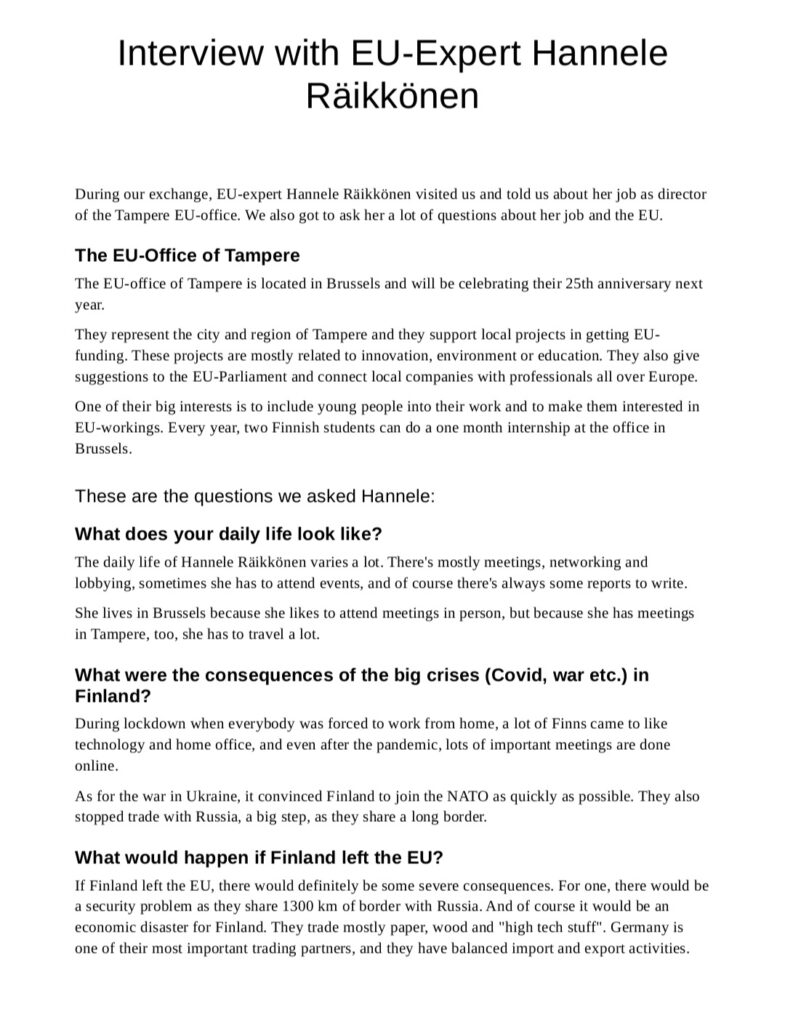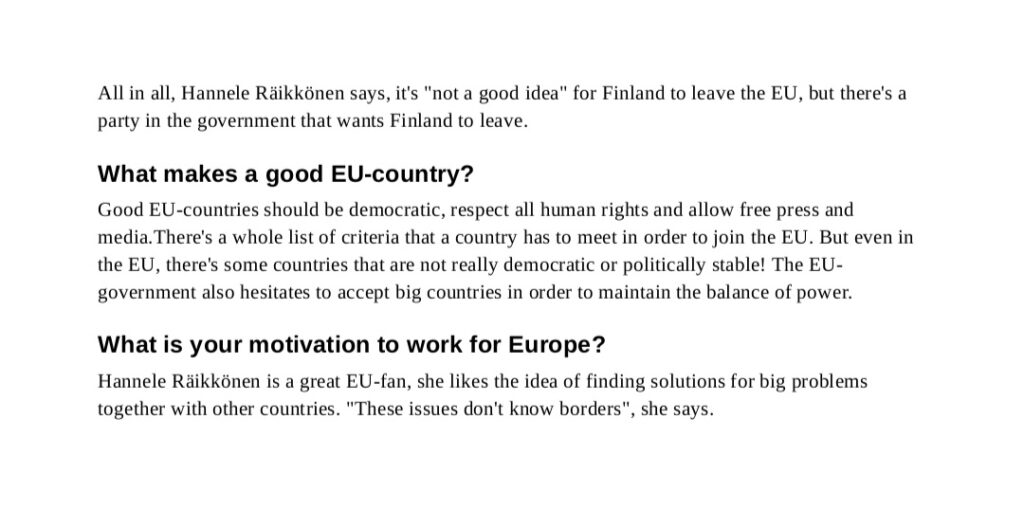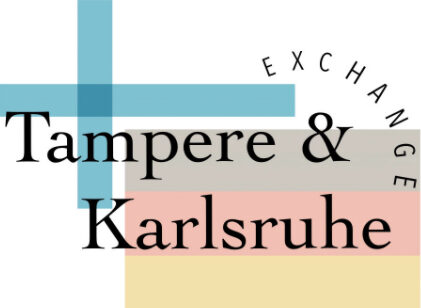What is the EU?
The EU (European Union) is an economic and political union of currently 27 European states. Outside geographical Europe, the EU includes the Republic of Cyprus and some overseas territories. Finland has been a member of the EU since 1995. Finland has been a member of the EU currency area since 1999.
History of the EU
The EU has its roots in several treaties concluded after the Second World War. It all started with the promotion of economic cooperation. The contracting parties had the idea that countries that trade with each other are economically dependent on each other..If they are dependent on each other, they would be more likely to avoid armed conflicts. This idea is still put into practice today. Due to the current events between Ukraine and Russia, parts of the ideas need to be reconsidered.”In 1951, six countries (Belgium, France, Germany, Italy, Luxembourg and the Netherlands) founded the European Coal and Steel Community. In 1958 it became the European Economic Community (EEC) and in 1993 the European Union.Over the decades, 22 other countries joined the Community, with its original 6 founding states.On 1 February 2020, the UK left the EU.” (2)
Schengen Area
The borderless Schengen area guarantees freedom of movement for EU citizens as well as non-EU citizens living in the EU or visiting the EU as tourists, exchange students or for business purposes (all persons legally residing in the EU).The free movement of persons makes it possible for every EU citizen to move around the EU area without border controls.”Today, the Schengen area includes most EU countries with the exception of Bulgaria, Cyprus, Ireland and Romania. However, Bulgaria and Romania are currently in the process of joining the Schengen arca and are already largely applying the Schengen acquis.On 1 January 2023, Croatia became the youngest member state to join the Schengen area. In addition, the non-EU countries Iceland, Norway, Switzerland and Liechtenstein have also joined the Schengen area.” (2)
Shared values.
“The Treaty on European Union enshrines the following: “The values on which the Union is founded are respect for human dignity, freedom, democracy, equality, the rule of law and respect for human rights, including the rights of persons belonging to minorities. These values are common to all Member States in a society characterised by pluralism, non-discrimination, tolerance, justice, solidarity and equality between women and men.” These values shape our European way of life. Human dignity is the foundation of fundamentalrights; It must be respected and protected. Human rights are protected by the EU Charter of Fundamental Rights. (1)
What is the EU doing?
In the meantime, the EU has become an organisation that represents numerous political tasks. The EU’s achievements include more than half a century of peace and prosperity. The EU’s goal, for example, is to make our health systems accessible to all. For this reason, it alsoagreed and implemented joint measures during the Corona pandemic. The “European Green Deal” sets out how Europe could become the first climate-neutral continent by 2050. The economy is supported, for example, in measures for the circular economy and the reduction of environmental pollution.In the field of energy, for example, the EU wants to support the transition from fossil fuels (coal, oil, natural gas) to the main use of renewable energies. The EU is active in other areas, such as marine exploration and social system support.The EU system will remain a system that will have to adapt to the new circumstances. I am glad that the EU has human dignity as its top priority.
Lit:(1) EU-Was sie ist und was sie tut (europa.eu) (Last accessed 9/19/23) (2) Schengen Area (curopa.eu) (Last accessed 9/19/23)


